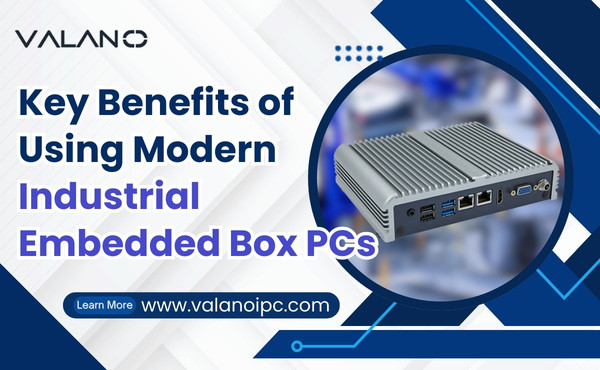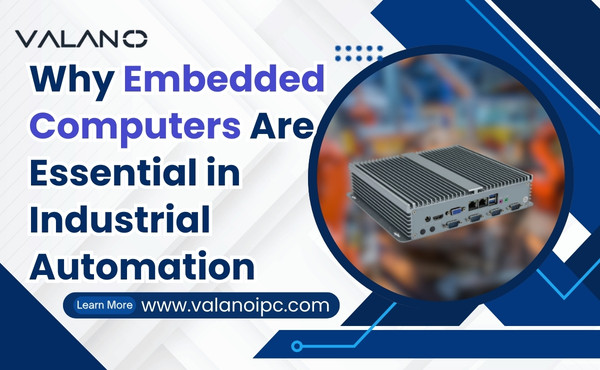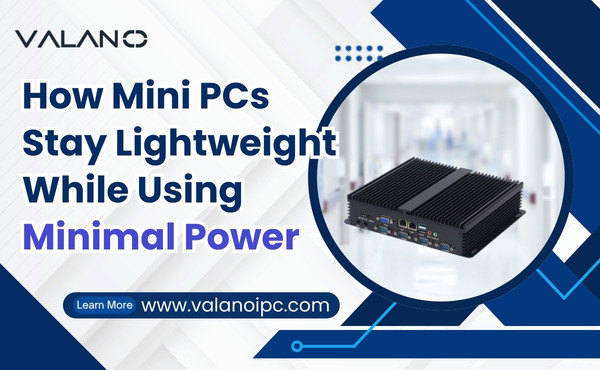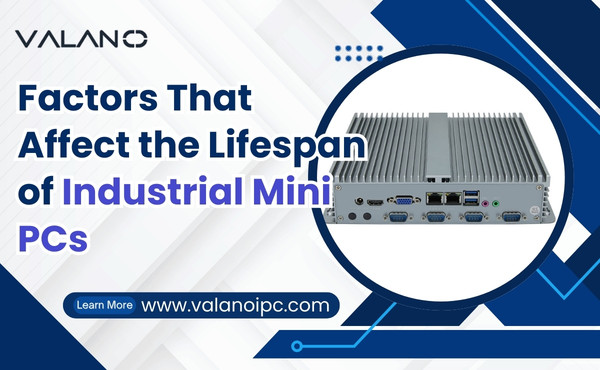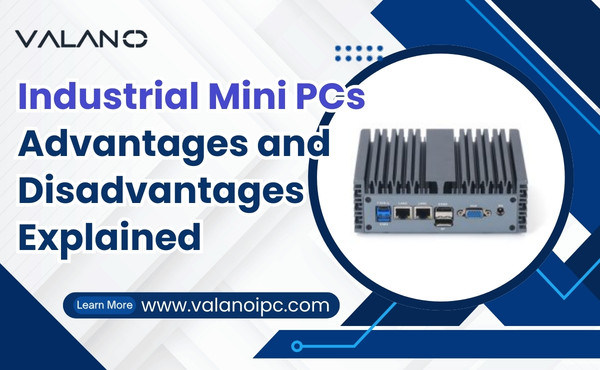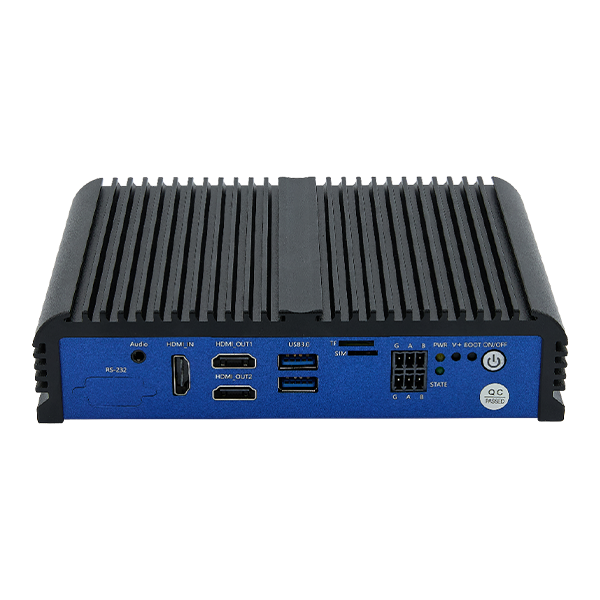Building a fanless PC for industrial automation is a smart choice for environments where durability, reliability, and low maintenance are essential. Fanless PCs work without traditional fans, using passive cooling systems to dissipate heat, making them perfect for industrial applications that demand quiet operation, dust resistance, and energy efficiency. In this guide, we’ll walk through the essential components and considerations needed to build a robust fanless industrial PC that meets your automation needs.
Why Choose a Fanless PC for Industrial Automation?
When building a computer for industrial automation, it’s important to consider the unique challenges posed by factory environments. High dust levels, temperature fluctuations, and noise can severely impact the reliability of traditional PCs. Fanless PCs are specifically designed to tackle these issues by relying on passive cooling rather than fans, making them ideal for tough environments.
The primary benefits of fanless PCs for industrial automation include:
- No Noise: No moving parts, which makes the system run silently.
- Durability: Fewer mechanical parts reduce the chances of failure.
- Energy Efficiency: These PCs consume less power, reducing operational costs.
- Dust Resistance: Sealed enclosures prevent dust from damaging internal components.
Ideal Temperature Range for Fanless PCs
Fanless industrial PCs are built to withstand high temperatures, typically ranging from -20°C to 60°C. This temperature range is suitable for most industrial environments, where extreme heat or cold can be an issue. Proper thermal management ensures these systems can run smoothly without overheating or failure.
Key Components for Building a Fanless PC
When it comes to building a fanless PC for industrial automation, choosing the right components is crucial. Let’s dive into the essential parts that will help you build a fanless system that works efficiently and stays reliable in demanding environments.
1. Low-Power Intel CPUs
For a fanless PC, the choice of CPU is critical, as it directly affects heat generation. Intel offers several low-power CPU options suitable for fanless systems, such as the Intel Celeron N-series processors. These CPUs have low thermal design power (TDP), typically around 6-10W, making them ideal for passive cooling.
Low-power Intel processors are energy-efficient and provide enough power for many industrial applications without generating excessive heat. They’re also more affordable compared to high-performance CPUs, making them a good fit for cost-conscious industrial projects.
2. SSD Storage for Efficient Cooling
Unlike traditional hard disk drives (HDDs), Solid-State Drives (SSDs) have no moving parts, making them less prone to failure in tough environments. SSDs are also more efficient in heat management, which is crucial in a fanless PC setup. Popular choices for industrial PCs include SATA SSDs and M.2 NVMe SSDs.
- SATA SSDs: Provide solid performance at a reasonable price and are reliable for everyday tasks.
- M.2 NVMe SSDs: Faster and more efficient, suitable for applications that require quick data access.
Both types of SSDs offer significant advantages over traditional HDDs in industrial environments where durability and reliability are essential.
3. Passive Cooling Solutions for fanless PC
In a fanless PC, passive cooling is essential for maintaining system stability without the need for traditional fans. The system’s case and heatsinks are responsible for dissipating heat. Copper and aluminum are two of the most commonly used materials in passive cooling solutions because of their thermal properties:
- Copper is excellent for heat transfer, ensuring heat is quickly moved away from the internal components.
- Aluminum is more affordable and still effectively dissipates heat.
Ensure the enclosure is designed to allow for proper airflow, even in the absence of fans. Look for IP-rated enclosures that are dustproof, which is a must in factory and industrial environments.
4. Fanless Power Supply (PSU)
A fanless power supply is key for ensuring that your industrial PC remains as silent as possible. Fanless PSUs are also designed to be more efficient, reducing overall energy consumption. Look for power supplies with 80 PLUS certification to ensure maximum efficiency and reduced heat generation.
The 80 PLUS Gold and 80 PLUS Platinum ratings indicate high energy efficiency, making them suitable for industrial automation applications where reliability and minimal energy waste are crucial.
Testing and Maintenance for Longevity
Once your fanless PC for industrial automation is built, it’s important to regularly test and maintain the system to ensure it continues to perform optimally.
1. Temperature Monitoring
Use software tools like HWMonitor or Open Hardware Monitor to keep an eye on the temperature of key components, particularly the CPU and SSD. For best performance, it’s recommended to keep the CPU temperature below 60°C.
Even though fanless systems use passive cooling, ambient temperature and airflow around the system are still crucial for heat management. Make sure the system is placed in an area with sufficient airflow to avoid overheating.
2. Regular Cleaning
Dust and debris can accumulate on the exterior of a fanless PC. Although the internal components are sealed, the exterior and ventilation areas may still collect dust. Use compressed air to clean the outside of the system and ensure optimal cooling performance.
3. Firmware and Driver Updates
Routine updates for your Intel CPU and SSD can help improve performance, security, and stability. Regularly check for new firmware versions to ensure your system remains up-to-date and free from vulnerabilities.
The Future of Fanless PCs in Industrial Automation
As the demand for energy-efficient, reliable, and low-maintenance computing solutions grows, fanless PCs are becoming more popular in industrial automation. These systems are particularly useful in harsh environments where traditional computers might fail due to excessive dust, heat, or mechanical failure.
Advantages of fanless PCs include:
- Lower maintenance costs due to fewer moving parts.
- Higher uptime, often exceeding 99.5%.
- Longer lifespan as they are designed to withstand harsh conditions.
- Dustproof and energy-efficient, helping to reduce overall costs.
Conclusion: Build a Reliable Fanless PC for Industrial Automation
Building a fanless PC for industrial automation requires selecting the right components that balance performance, power consumption, and heat management. CPUs, SSD storage, and passive cooling solutions are essential for creating a durable and efficient industrial PC. These systems are ideal for environments where traditional PCs may struggle to perform, providing enhanced reliability and energy efficiency.
By carefully selecting components and maintaining the system, your fanless PC will be a reliable and cost-effective solution for industrial automation tasks, capable of handling demanding conditions with ease.


